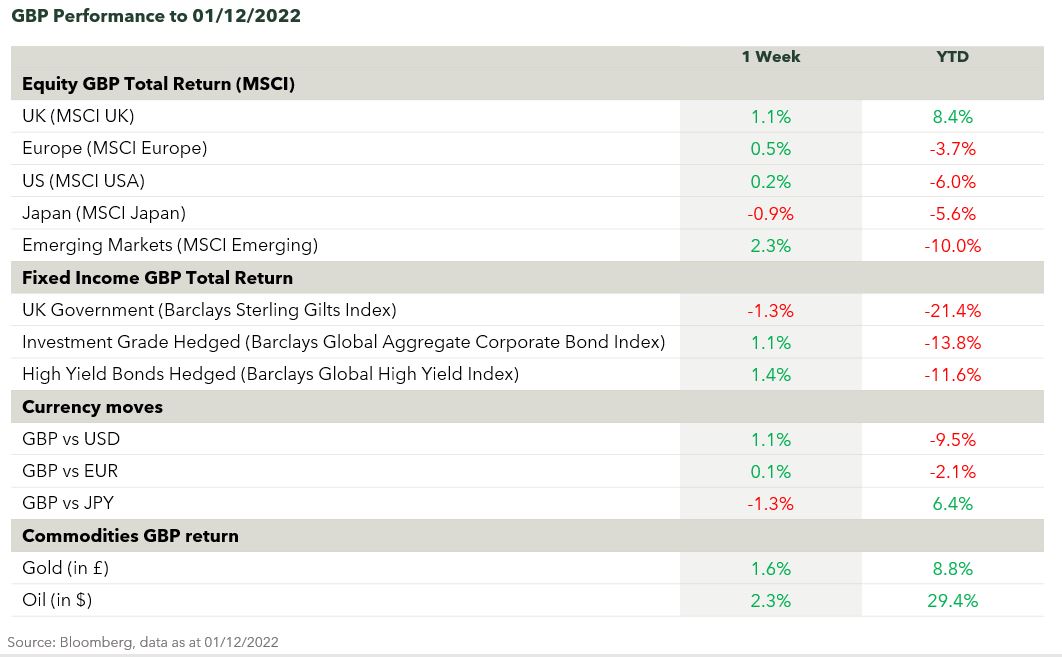The noise
-
UK house prices fell in November at their fastest rate in two years falling at 1.4% as rising interest rates discouraged buyers from purchasing a property. Although falling property prices may be a relief to some first time buyers, the big increase in the general cost of living may well limit their ability to save for a deposit.
-
The Federal Reserve’s preferred gauge on inflation rose by less than forecast month-over-month. The personal consumption expenditures price index which excludes the volatile food and energy components rose by 0.2% versus expectations of 0.3% in October. This may give some hope that rate hikes will be moderated at upcoming FOMC meetings.
-
US weekly jobless claims retreated 16,000 to a seasonally adjusted 225,000 in the week ending November 26 the Labour Department released on Thursday. The print came in better than market expectations and overall claims remain in line with pre-pandemic levels.
The numbers

The nuance
Economic releases this week showed that inflation continues to slowly subside with the Federal Reserve's favoured measure coming in lower than expected and moderating from prior months. Additionally the Manufacturing survey was weaker than expected indicating a contraction is in progress, which combined with employment statistics weakening indicates that policy is gaining some traction. The economy is moving into a recession, the severity of which is yet to be determined, which is putting downwards cyclical pressure inflation.
Longer term questions over the length and severity of the recession are key, along with the inflationary impact of the governments response to help the population through this adjustment period. Equities are fair value but earnings for risker stocks with less certain outlooks are at heightened risk, but more dependable companies at the right price combines with bond portfolios that have higher yields give investors a good opportunity to survive this stagflationary period.
Quote of the week
“Christmas dinner cost jumps as chipolata prices soar.”
Dearbail Jordan and Lora Jones, BBC News
Christmas dinner is set to be more costly for families across Britain this year, as festive staples including turkey, Brussels sprouts and pigs in blankets have seen double digit inflation increases.
A typical Christmas dinner for a family of four will now cost around £31.64, up from £27.49 last year. The price of enough frozen turkey to feed four is set to increase by 19.7 per cent from £12.46 to £14.91. Meanwhile, the latest ONS figures show the cost of fresh vegetables has increased by 15.1 per cent over the last year, impacting the cost of Christmas favourites such as carrots, parsnips and Brussels sprouts.
One food category that has seen the biggest inflationary increases in the last year is sauces and condiments, meaning households should expect to fork out more for things such as gravy and cranberry sauce
In some better news, the price of some festive drinks has reduced with prosecco being 3.2% cheaper than this time last year as well as Baileys by 1.6%. A number of factors have contributed to the cost of food rising over the past year, including rising transport and packaging costs caused by global inflation pressures.
Source: The Independent, Yahoo! News, BBC News